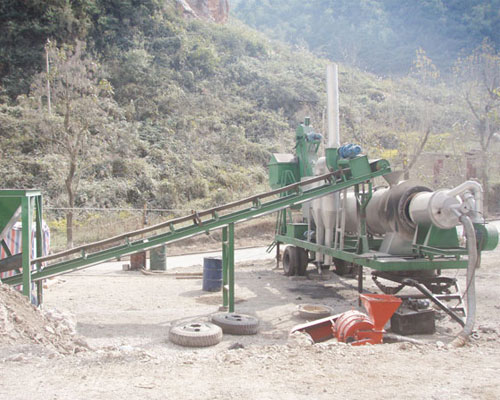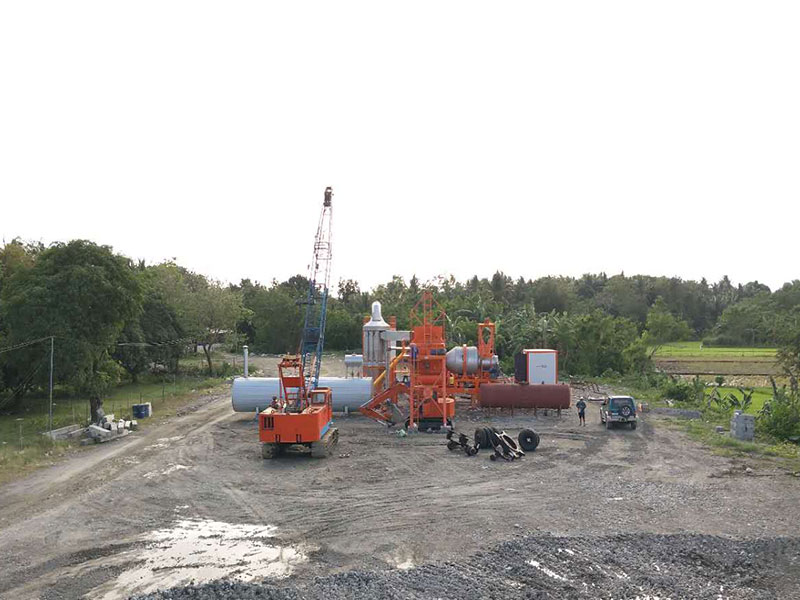Portable asphalt plants play a crucial role in the construction industry, providing flexibility and efficiency in the production of asphalt mixes. As the demand for infrastructure development continues to rise, it is essential to examine the environmental considerations associated with portable asphalt plants.
Emissions Control:
Portable asphalt plants are designed with advanced technologies to control emissions effectively. One significant concern is the release of particulate matter, which can have environmental and health implications. To mitigate this, modern portable asphalt batch plant for sale is equipped with sophisticated dust collection systems. These systems capture and filter particulate matter, preventing its release into the atmosphere.

Energy Efficiency:
Energy consumption is a critical environmental consideration. Portable asphalt plants often incorporate energy-efficient components, such as advanced burners and insulation materials. Some plants also offer the option of warm mix asphalt (WMA), which allows for lower mixing temperatures, reducing energy consumption compared to traditional hot mix asphalt (HMA) processes.
Reduced Carbon Footprint:
Portable asphalt plants contribute to a reduced carbon footprint by optimizing the production process. The use of WMA, in addition to energy-efficient components, minimizes greenhouse gas emissions. As a result, these asphalt batch plants align with global efforts to combat climate change by decreasing the environmental impact associated with asphalt production.
Water Conservation:
Water is a valuable resource, and the asphalt production process can be water-intensive. Portable asphalt plants often integrate water recycling systems, capturing and reusing water from various stages of the production cycle. This not only reduces water consumption but also minimizes the environmental impact of wastewater disposal.

Noise Pollution Mitigation:
Construction sites, including those using portable asphalt plants, can contribute to noise pollution. Manufacturers address this concern by incorporating sound-dampening technologies into the design of portable asphalt mixer plants. These measures help minimize the noise generated during production, creating a more environmentally friendly work environment.
Compliance with Environmental Regulations:
Environmental regulations vary by region, and compliance is crucial for sustainable operation. Portable asphalt plant manufacturers ensure that their products meet or exceed local environmental standards. This may include adherence to emission limits, noise regulations, and other environmental requirements specific to the plant’s location.
Flexibility for Remote Projects:
One environmental advantage of portable asphalt plants is their ability to support construction projects in remote or environmentally sensitive areas. By bringing the production facility to the project site, the need for transporting materials over long distances is reduced, minimizing the associated carbon emissions and ecological impact.
Land Use and Restoration:
Portable asphalt plants are designed with a compact footprint, optimizing land use on construction sites. After project completion, manufacturers often prioritize ease of dismantling and site restoration. This commitment to minimizing the long-term impact on the landscape reflects the industry’s dedication to environmental stewardship.
Conclusion:
In conclusion, the environmental considerations of portable asphalt plants from Aimix Group are central to their design and operation. Through technological advancements and a commitment to sustainability, these plants address key concerns such as emissions control, energy efficiency, and reduced carbon footprint. As the construction industry continues to evolve, the integration of environmentally friendly practices in asphalt production remains a pivotal aspect of responsible and sustainable infrastructure development. By prioritizing environmental considerations, stakeholders can contribute to a greener and more sustainable future for the construction sector.